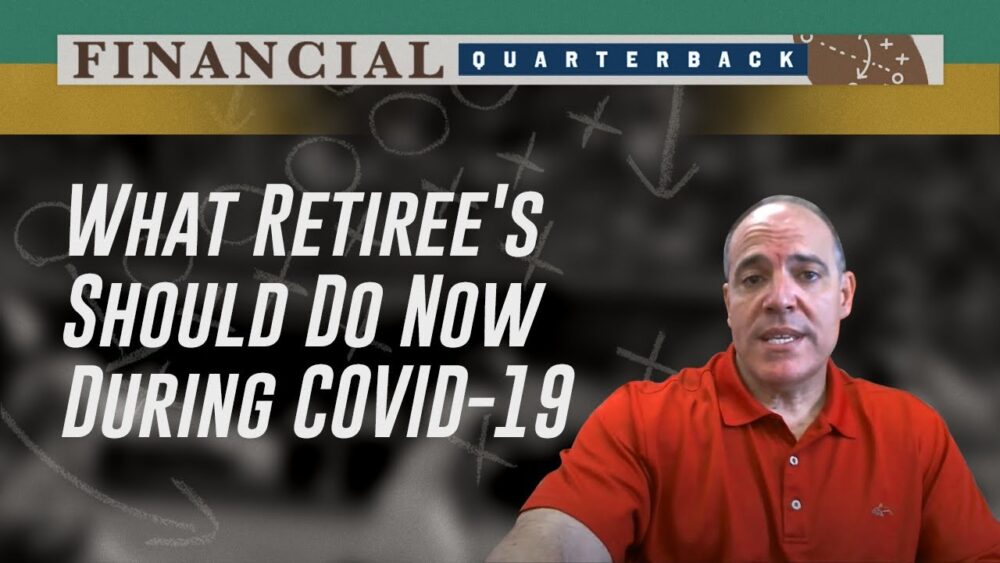In fact, most retirees don’t plan their retirement well and are too dependent on the market.
There is a huge problem with retirement in this country and it’s how both investors and many financial planners prepare for it. There is a widely accepted method used in the industry that you just decide on a date to retire and invest your money in this magical portfolio in the stock market which will generate all the income you will need.
Unfortunately, nothing can be farther from the truth.
The world of accumulation (your working years) is an easy world to live in. You work and put money away in a variety of different investments over the span of 40+ years.
There are several rules we become familiar with during this period: dollar cost averaging, compound interest, buy low/sell high, tax deferral, and average return. All these rules work well during your accumulation years. But when you switch gears and move into the distribution world (i.e. retirement), those same rules work in reverse and can destroy your retirement if you do not plan correctly.
There are also risks that work against us in retirement. Things like longevity, sequence of return risk, interest rate risk, market risk, economic risk, healthcare and long-term care risk, etc. which will also destroy your retirement if you do not plan for them. (Longevity being the worst of all possible risks.)
So, let us review a few things you should be doing to protect your retirement during COVID-19.
1. Do not panic and liquidate everything.
Although scary at first, you do not want to sell into a market crash. You need to resist that temptation, have patience, but begin to organize your thoughts and quite possibly seek help at evaluating what you are doing.
2. Manage your income, not the market, FIRST.
The most important aspect of any successful retirement is income. A retirement without income is not great.
Chances are very low you were infected with COVID-19, but your portfolio has probably been infected. When you combine the effects of the rapid downturn in the stock market and your income distributions, you are looking at a portfolio that will have a tough time recovering.
This is nothing new. It is called sequence of return risk and it has affected retirees during the economic downturn in early 2000’s, again in the financial crisis of 2008-2009, and now during COVID-19. Sequence of return risk is real, and chances are, you are going to need to review and adjust your distributions now (rather than later!) so that you do not run out of money.
I know how the markets work, the risk involved, the long-term returns, asset allocation, etc. I am also no different than any other investor. I just want to make as much return as possible with my money.
I want to make as much as I can make. If I can make 10%, 20%, or 30%, I want it. But just as important (and maybe the most important, especially in retirement), I do not want to lose what I already have. Vanguard, Fidelity, and Ken Fisher cannot do that for me. And if the market cannot guarantee my returns, then it surely can’t guarantee my income.
If you want income and want to ensure that income, than you must build a plan for income.
That is where the Perpetual Retirement Income Machine comes in. This strategy separates your overall plan into segments of income and growth. The income segment is built to protect your retirement and provide guaranteed reliable inflation adjusted income. The growth segment is built for increased growth and possible future income, but will have greater risk.
3. Manage the market.
After you create an income plan, you want to manage your market portfolio.
Quite often retirees have horrible portfolios in the stock market. They’re not diversified or random enough.
This is a great time to review your allocations (or your lack of asset allocation) and build a better allocated managed portfolio for that portion we want to keep in the stock market.
4. Taxes, Taxes, Taxes
I am a big proponent of paying as few taxes as possible.
Taxes are usually the first or second-largest expense for many retirees. The current COVID-19 economic environment has caused many portfolios to lose value. We also have some of the lowest tax rates we have ever had. In addition, the CARE’s Act provided some opportunities for 401(k)s and IRAs. This is a good period to review converting those taxable assets into tax-free assets.

